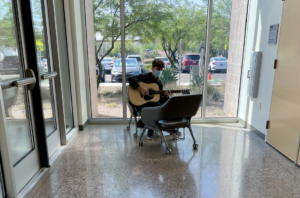School Board Members Consider Digital & Deeper Learning
 Solodad O’Brien opened the #NSBAconf today in Boston with a reminder that we all have the same goals. She urged school board members to keep the justice agenda central and confront the uncomfortable.
Solodad O’Brien opened the #NSBAconf today in Boston with a reminder that we all have the same goals. She urged school board members to keep the justice agenda central and confront the uncomfortable.
NSBA director Ann Bryant (retiring this summer after 16 years) highlighted two districts for their edtech leadership: Klein, Texas and Dysart, Arizona.
Digital Learning Tipping Point. Gov Bob Wise, Alliance for Excellence in Education, and I joined Mark Edward, the Moorseville North Carolina superintendent, in a digital learning discussion.
I recapped Getting Smart and the benefits of personal digital learning: customization, motivation and equalization. Bob referenced the state policy framework Digital Learning Now and Digital Learning Day.
Edwards described the Moorseville 1:1 MacAir solution that costs $1 per day per student (see Digital for A Dollar a Day). As one of the lowest funded districts in North Carolina, Moorseville made digital learning a priority and reallocated a number of line items.
I mentioned the subsidized sliding-scale parent pay model common outside the US (see Portugal’s 1:1 Initiative Propels PISA Improvement) and suggested that a mixed strategy that includes ‘bring your own device’ is worth considering.
A school board member whose district has admittedly low level of proficiency asked “Why should we experiment on our kids?” Edwards described his district’s impressive results. I mentioned that blended math results have been impressive. For example, two short sessions with ST Math, a visual game-based approach from MIND Research Institute, in over 1200 schools has produced significant increases in the percentage of proficient students. Rocketship and Carpe Diem are examples of high performing elementary and high school blends.
Districts have about 24 months to get ready for online assessment. We all agreed that it’s time for every district to build a plan for digital learning that includes improved access, professional development, and phased implementation of blended school models (see the Rise of Blended Learning).
Common Core + Deeper Learning. Two teacher leaders outlined why they believe the Common Core is a great opportunity to promote deeper learning. Barbara Treacy, EdTech Teachers Online, said the Common Core ELA standards have particular demands for media and literacy focus on informational text, explanatory writing, domain specific vocabulary. In addition to content standards, the Common Core math expectations also include habits of mind. Treacy gave examples of using games to build conceptual understanding
Karen Fasimpaur, k12OpenEd, said the Common Core standards reflect a significant change. “If new ‘Common Core ready’ materials don’t look much different, they probably don’t really reflect the Common Core.” Karen warned against just trying to shift stuff around after comparing existing standards to Common Core. “Crosswalking old and new standards won’t yield the ‘fewer and deeper’ expectations and it will lead to a less than optimal implementation. She encouraged districts to “take your time and evaluate materials” and “avoid superficial alignment of materials.” (See Achieve.org for evaluation rubrics.)
Geoff Fletcher, SETDA, said we live in the “age of the waterbed” and the four corners are content, assessment, tech, and PD—touch any corner and the waves effect the others. Geoff urged a coordinated adoption of Common Core and digital learning.
Fletcher described PARCC and SBAC plans for online assessments in 2014-15 and SETDA’s involvement in audit of state and district technology readiness. He said, “Today’s summative assessment don’t measure what matters, don’t provide actionable feedback, don’t guide instruction, and only provide a one-day snapshot.” The new Race to the Top funded tests will feature “optional interim assessments, innovative item types, and online scoring.”
Fletchers comments led to a lot of grumbling about new tests, a lack of information, and concerns about paying for them. (Those of us that want to see these new tests be successful have work to do.)
All three are active supporters of open education resources (OER). Karen advocated for Creative Commons licensing of all publically funded materials. She is working on P2PU School of Ed, an open PD initiative.






0 Comments
Leave a Comment
Your email address will not be published. All fields are required.